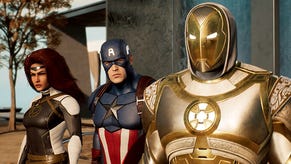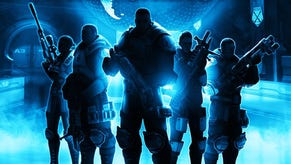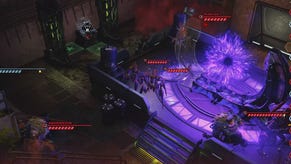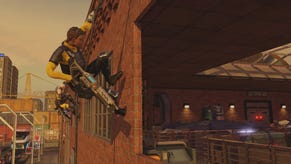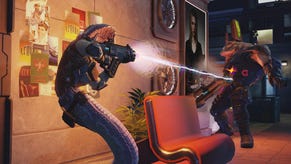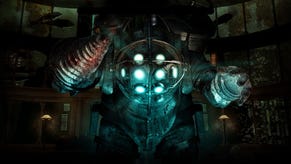XCOM: Enemy Unknown: death and emergent stories
With XCOM: Enemy Unknown shipping in the US and Europe this week, Patrick Lum explores the reboot's emergent narrative and systemic storytelling.
Before video games came along, where else were you going to get player-authored narratives? Pen-and-paper RPGs, maybe. But, man, am I glad to see it back in action.
Perhaps the most surprising thing about XCOM – to people who didn’t really get into the original, at least – is how personal the whole thing can get. Think about it: you’re the commander of an elite military unit defending the Earth from overwhelming alien invasion. You’re sending units into the meatgrinder, and you know it. In any other strategy game, where your units aren’t pre-made characters (lookin’ at you, Fire Emblem), you wouldn’t give a damn about your rookies. Blood for the blood god, and all that.
But XCOM makes you care about your troopers. Not in a “soldier playing a harmonica and speaking lovingly of home” kind of way, or in a “he was just two weeks from retirement” sense; nothing quite so blatant or crass. It does this, rather, in two major ways: purely through the game’s mechanics, and via dashes of narrative aesthetics.
The mechanics argument is a fairly simple one based entirely on utility, usefulness, and plain tactical worth. Squad sizes in XCOM are limited to six at the most, so every loss – even of the rookies – hurts deeply, at least while you’re still in the battle. Additionally, veteran troopers gain extremely useful abilities and stat upgrades as they rank up, ensuring they’re likely to be your most efficient killing machines in the battles to come. So, as you can imagine, losing any of them – the godlike sniper with squad sight, the experienced medic who could patch up wounds – is painful.
It’s aided by a liberal dosage of minor, largely aesthetic details, that nonetheless do wonders in helping players craft their own stories about the global war of aggression against an unknown alien threat. First and foremost: soldier names. That’s not just a rookie, a squaddie, or a heavy trooper with a rocket launcher. That’s Killian Lynch, Giorgio Tsoukalos and Marina Sokolova. It’s nothing more than assigning a human name to a collections of pixels and tactical options, but, admit it: naming something does something to the human mind.
If you don’t like the pre-assigned variables, you can customise them. Name them after your family, your friends, your co-workers or your enemies; after historical figures, after Power Rangers, after the development staff of the game – anything you want. You can change their faces, the look of their armour, dictate their colour scheme. It’s not pink, it’s light red, soldier! Even things you can’t modify – country of origin, for instance – these help make your troopers into something more than robots.
And these guys and girls aren’t disposable, no sir-ee. They’ll be with you mission after mission, from first contact to the final assault – if you’re skilful, and prepared, and more than a little bit lucky. They don’t just get better abilities as they survive, they gain nicknames, too, and stories. We call him Lockdown – he got off the ramp and didn’t move for two minutes, a sniper shot every three seconds, dead Mutons at our feet. She’s Nuke – why? Check out the rocket launcher and the grenades, and don’t ask stupid questions. Papa Bear? The man took three plasma shots to the chest and didn’t die, he’s got to be at least part ursine.
The best, most interesting part of all these little stories popping up is that none of it is scripted; none of it is laid down in stone, ahead of time, by a creative auteur who knows each and every thing that’s going to happen next. There’s a time and a place for those kinds of tales, but it ain’t here. This is emergent storytelling, people, a multitude of gameplay systems interlocking and pulling together and pushing against one another, with a fresh coat of just-enough-paint on it to fire up your imaginations. Admittedly, the kinds of stories it can tell are limited in scope – it’s pretty much all going to be in the general wheelhouse of killing or being killed by aliens – but it’s still something pretty damn special.
Not that I want to imply that XCOM is the originator of this style of storytelling. Obviously, the original X-com had it in spades; but you can see others of its ilk appear in games as diverse as FTL and Far Cry 2, from Minecraft to DEFCON. Before video games came along, where else were you going to get player-authored narratives? Pen-and-paper RPGs, maybe. But, man, am I glad to see it back in action. Don’t get me wrong; there’s nothing inherently wrong with the linear, movie-style, cutscene-driven stories we see in Assassin’s Creed, in Bioshock, in Call of Duty and elsewhere. But sometimes you just want to play in that sandbox and make your stories out of systems.
By the way, if you’re playing on Classic, build an extra satellite first thing out of the gate. You’ll thank me later.
XCOM: Enemy Unknown released yesterday in the US. It ships on Friday in Europe.



